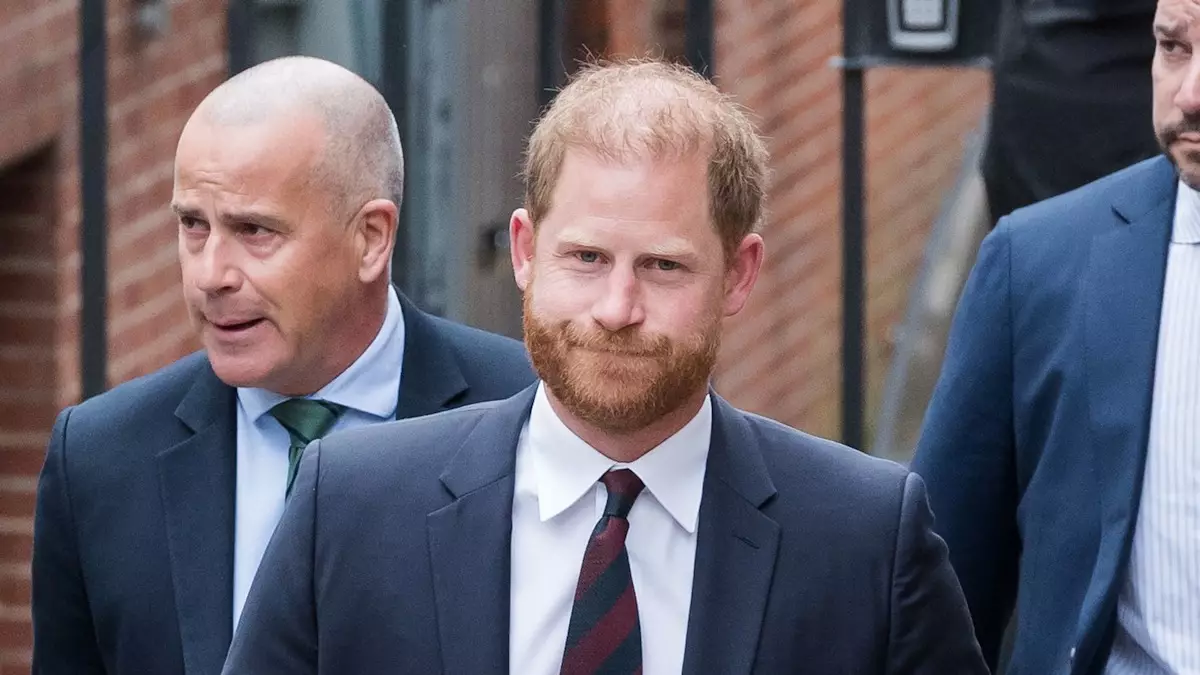The public life of Prince Harry, Duke of Sussex, has always been a polarizing topic, and recent comments made by British politician Nigel Farage at a cryptocurrency conference illustrate just how charged his presence remains in both the UK and the United States. Farage’s quip during his speech at the Bitcoin Conference in Las Vegas—where he notably announced that his political party, Reform UK, would be accepting donations in Bitcoin—offered an explicit jab at Prince Harry that resonated with the audience, but it also revealed layers of sentiment that underline the former prince’s complicated positioning in the public eye.
Farage’s humor, despite its apparent lightheartedness, reflects a deeper societal discourse about celebrity, responsibility, and the evolving notions of royalty. In a digital age, where public figures frequently become the subject of ridicule and admiration in equal measure, such remarks can shape perceptions of how royals like Harry are viewed, not just as individuals but as symbols of larger societal changes.
The Unpacking of a Joke
The essence of Farage’s joke—that the UK has sent America Prince Harry in exchange for what he views as “woke” ideas—achieves more than mere laughter; it suggests a trade-off between cultural values. This commentary paints Harry not just as a figure of fascination but also as a scapegoat for some Britons who feel discomforted by the shifts in societal norms and attitudes associated with the so-called ‘woke culture.’ By linking Harry to the concept of ‘woke,’ a term often associated with political correctness and social justice movements, Farage subtly critiques the values that the Duke represents, while simultaneously elevating the act of mocking him to a form of political commentary.
There is an inherent irony in the fact that Farage, primarily known for his right-leaning and populist political views, would utilize the notion of a royal figure who has distanced himself from traditional British norms to further his own narrative. The joke becomes a double-edged sword, swinging back and forth between humor and a deep-seated commentary on the changing social landscape.
The Duality of Prince Harry’s Narrative
Prince Harry’s departure from royal duties has opened up a space filled with both admiration and criticism. His candid remarks about enjoying life in America and the normalcy he seeks for his children serve as a stark contrast to the traditional expectations of royalty. The young family’s pursuits in media and philanthropy have earned them both staunch supporters and fervent detractors. This dichotomy serves as fertile ground for public debate, fueling discussions about tradition versus modernity.
While Harry reflects positively on his new life—identifying with his mother’s desire for a peaceful upbringing—his public reception is still tinged with skepticism. The conflicting perspectives on his actions create a sense of ongoing tension, further intensified by the mocking undertones from figures like Farage. Harry remains not just a person, but a symbol of the unpredictable and often tumultuous relationship the UK has with its royal heritage, showcasing how a single public figure can encapsulate various dimensions of societal discourse.
The Future of Royal Public Perception
As public interest in the Sussexes continues unabated, it is clear that Harry’s presence will be a touchstone for evolving attitudes toward monarchy and celebrity in a globalized, interconnected world. Comments like Farage’s may serve as a momentary punchline, but they are indicative of a larger narrative unfolding across both pools of British and American audiences. The interplay between admiration and disdain for Harry reveals a broader cultural contemplation that hinges on the values we ascribe to our public figures.
Farage’s quip has, therefore, acted as a mirror, reflecting not only individual and political sentiment but also the collective psyche regarding what it means to be royal in a world that is rapidly changing. Whether or not Harry shifts back into the royal fold remains to be seen; however, the conversations sparked by such public remarks will undoubtedly shape the dialogue around the monarchy for years to come.

